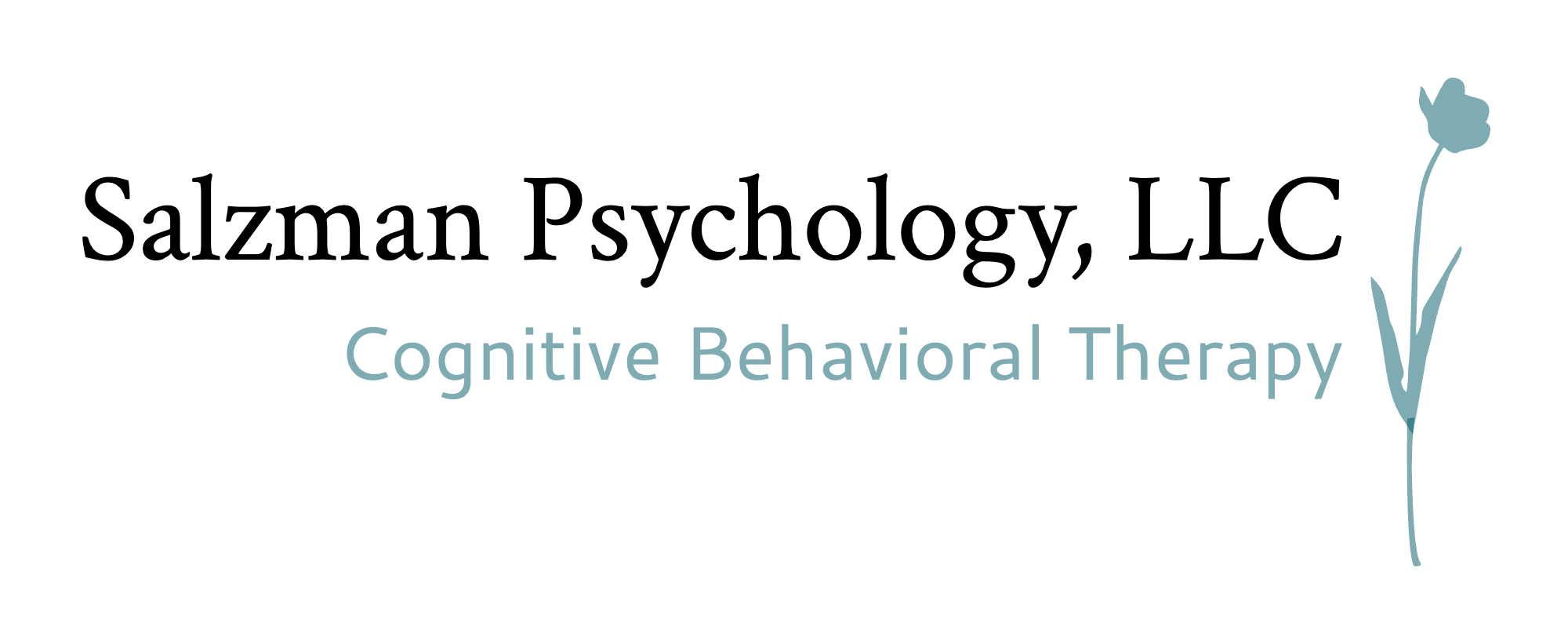What is Cognitive Behavioral Therapy (CBT) & how can it help me?
CBT is evidence based & effective.
CBT Has been studied for decades and is proven effective
CBT is an evidence-based mental health treatment. Research shows that either CBT alone, or CBT in combination with medication, is the most effective treatment for a wide variety of mental health issues. In some cases, CBT is considered the “gold standard” (meaning it has been proven to work better than any other type of therapy or medication).
CBT focuses on your thinking and behavior habits
CBT focuses on changing the distorted thoughts and unhelpful behaviors that are causing your distress. CBT is not about being positive, it is about seeing yourself and the world realistically. Changing these habits is hard work, but I have seen many people use CBT to achieve (and surpass!) their goals.
CBT improves symptoms quickly.
CBT teaches concrete strategies
CBT is a very active treatment, and focuses on learning skills (e.g. relaxation, cognitive restructuring, behavioral activation, and many more). CBT can also include exposure (slowly getting used to the sensations and situations which scare you, so that you are no longer so frightened).
CBT is more than “just talking” about the problem
If you have been in another type of therapy, CBT may feel very different. Sessions will not feel like we are chatting away, with no goal in mind. Instead, sessions are focused on teaching you the skills you need to feel better as soon as possible. CBT also includes “homework” to practice skills outside of session, which will also help to improve symptoms quickly.
CBT provides long lasting improvement.
CBT teaches you to “be your own therapist”
CBT focuses on helping you learn and master the skills you need to maintain your own mental health. In fact, my ultimate goal is to work myself out of a job! I want you to get better as fast as possible and leave treatment feeling confident in your ability to maintain your gains and continue to improve.
CBT is empowering
The goal of CBT is to equip you to take charge of your mental health for the long term. When you graduate therapy, you will understand exactly how you got better, so you can feel confident in your ability to continue to care for your mental health on your own.
CBT provides deep insight.
CBT is not a “band aid” treatment
Although CBT is very focused on reducing your current symptoms, CBT is not just a “band-aid” treatment. It does not ignore the past, your childhood, or the deeper causes for current problems.
CBT provides meaningful and lasting change
CBT helps people understand the experiences and core beliefs that have formed them into who they are today. This processing of your life experiences and exploration of your core beliefs can provide transformative change and growth.
Questions about CBT
-
Great question! Read my answer here.
-
Absolutely! Cognitive Behavioral Therapy is an evidence based treatment, and hundreds of empirical studies support its efficacy. Data also shows that online sessions can be just as effective as in person treatment. Even if you have suffered for many years, it is still possible to learn new skills and get better. However, CBT is not a magic bullet and will definitely take hard work. Many factors will play into how fast and much you improve, but I want you to know that it is possible to experience a life that is not dominated by worry, anxiety, panic, perfectionism or insomnia.
-
This is a tough question, because no two sessions of therapy will be identical. All treatment is tailored to your specific needs, goals, and treatment plan. However, CBT sessions will generally include several components. The beginning of session is usually used to review homework assignments, and troubleshoot any issues. We will then work together to set an agenda for the day. We can either learn and practice a new skill, discuss a new concept, or discuss a particular concern or event that you bring to session. At the end of session we will review your experience and then assign homework.
-
Yes! I suggest some sort of therapy homework at the end of every session. I assign homework because homework is an essential component of Cognitive Behavioral Therapy, and I have found over many years of experience that practicing therapy skills outside of session is absolutely key to your progress in treatment. Generally, the more you practice the skills we learn together, the faster you will master those skills, and the faster you will improve.
The first few sessions, I will generally cover the basics of CBT, and your homework will be to practice the skills we learn in session. Homework can include things like trying out new self care behaviors, practicing relaxation exercises, learning to track your thoughts and emotions, challenging unhelpful or unrealistic thoughts, implementing sleep hygiene skills, practicing communication skills, and many other activities. I will frequently send you handouts which review information and skills learned in session, and guide you in your practice.
As treatment goes on, your homework will vary depending on your specific treatment plan, and your current concerns and challenges. Homework is always a collaboration, and you will absolutely be involved in designing assignments. You decide when and how much you want to practice. This collaboration process is another reason why homework is so important in therapy. When you practice skills outside of session, and we discuss your experience, it helps me to understand what is working for you, and what we might need to review or change in treatment in order to best help you.
So, yes, I do assign “homework”, but remember that therapy is not school, and you are not being graded! There is no way to “fail” homework, because no matter how your practice goes, we will learn from the experience.
“Success is not final, failure is not fatal: it is the courage to continue that counts.”





